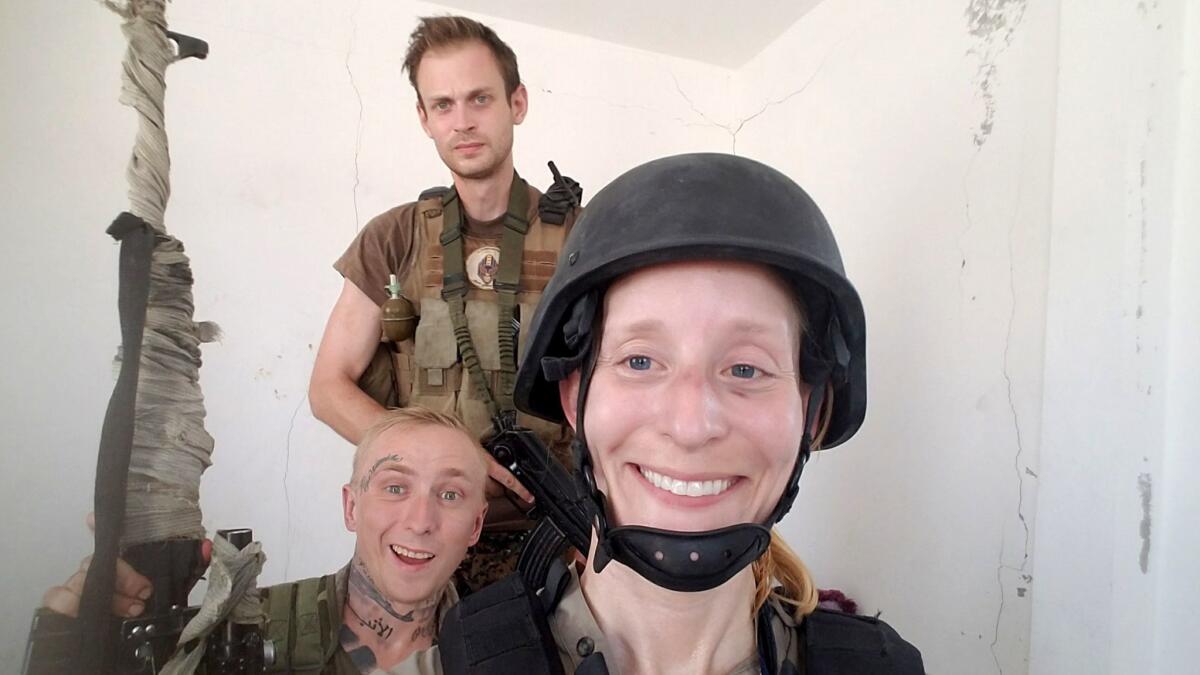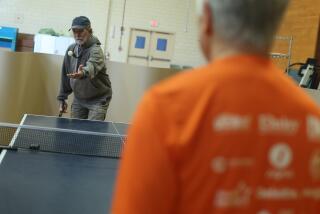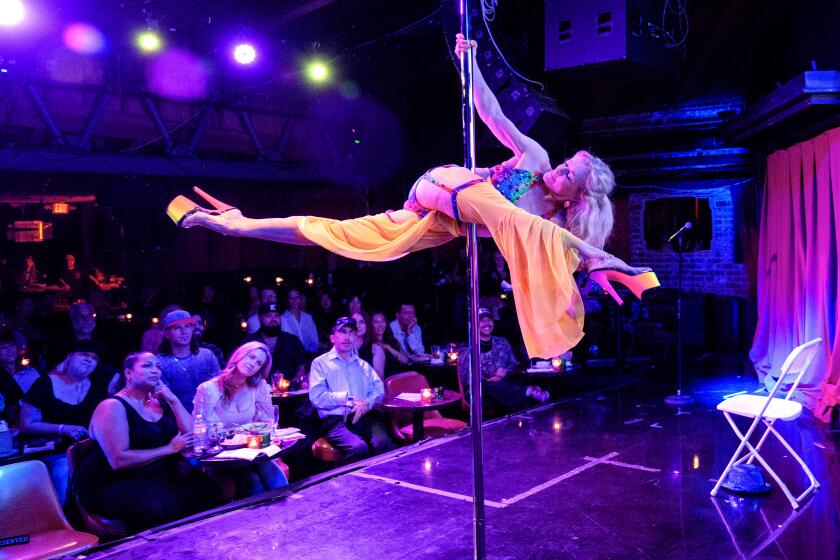Behind the story: A Marine suicide, and then a reckoning

Reporting from Tucson, Ariz. — I first met Kevin Howard in a bombed-out building in Raqqah, Syria.
It was July 2017. Islamic State still controlled the city, the capital of its self-declared caliphate. I had texted and talked with Howard’s fellow U.S. volunteers via Facebook messenger and seen a photo online of the striking Marine veteran, covered in tattoos and aiming an assault rifle.
To reach him, I had to clear a series of bureaucratic hurdles, and a war zone.
It took months to win approval from Kurdish officials in Iraq to cross the border with a translator into eastern Syria by boat at the rural outpost of Faysh Khabur. From there, a driver took us west to a Kurdish military outpost on the outskirts of Raqqah. There we stayed for days with Syrian rebel fighters, waiting to be escorted to the front lines. There was no running water, air conditioning or electricity beyond a few hours of generator power. Sometimes, we slept on the roof.
Finally, Kurdish troops took us in the back of a pickup truck to their command post, then to Christian militia commanders near the front lines. To reach Howard’s sniper’s roost, we had to walk, wearing helmets and bulletproof vests.
We were guided by a Western volunteer with an assault rifle, who warned us about Islamic State drones armed with bombs. He pointed out enemy positions in empty concrete apartment high-rises a few streets away. Raqqah was a ghost town, a shambles of pockmarked gray concrete, its residents displaced or dead. Several times, we had to sprint across intersections to avoid snipers before reaching Howard’s post.
We wouldn’t have much time to talk. It was afternoon, and we had to leave before dark. The longer we stayed, the more we risked news of our arrival spreading, making us targets.
Howard was excited about the time we had, and used it to show us around. His friend Taylor Hudson joined us on rugs spread across the floor of their spare living quarters in a former living room.
Later, as we climbed crumbling concrete steps to their sniper’s perch atop the house, I noticed they didn’t wear flak jackets or helmets. On the roof, I darted out to take a few photos. It was a quiet day, no gunfire or mortars. Howard was relaxed. He showed me places he had broken the wall that he would use to take aim. He called them “murder holes.”
I had already written about Iraqi commanders, soldiers and medics who I suspected would not survive fighting Islamic State. So when I left Howard in Raqqah that day, I didn’t have any illusions. Several U.S. volunteers had already died in Syria, including 28 year-old Californian Robert Grodt.
But many of the Iraqi forces I went on to meet in Mosul survived. So when Howard left Syria for Iraq in October 2017 and made it back to the U.S., I wrote a story and moved on, figuring he’d be OK too.
I was wrong.
I knew Hudson was living in Tucson, but we didn’t stay in touch. I traveled there this spring to report on the Mexican border, but didn’t reach out. I had no idea Howard was there too.
I learned of Howard’s death the next day from a fellow volunteer in Syria who messaged me on Facebook. Then I read Hudson’s note:
“My best friend just killed himself in front of me. A lot of you are messaging me and I appreciate that people are concerned about me but this is not about me right now and I don’t feel like talking…Some of you have expressed guilt over not staying in closer contact with him recently. While it is a wake up call that we need to keep tabs on our brothers and sisters, in his case he had many people close to him during his final months. It’s easier to blame ourselves and believe that ‘If only I had said/done’ etc.”
I responded immediately.
“What you wrote captured exactly how I felt, and I guess others felt that way too. I wish things had been different,” I wrote. “I remember meeting you over there and wondering, like I did with the Iraqi soldiers I met in Mosul, whether you would survive.”
Hudson wrote back to say he had wondered the same thing in Raqqah.
“I was sure that one of us would die,” he wrote. “When we both made it back and then I got him down to AZ I felt like we had a second chance. Really thought he might make it.”
We talked and I decided to fly to Tucson. I wanted to meet Howard’s friends — eight veterans, one of whom also volunteered in Syria — when they gathered to claim his ashes.
But, really, I was worried about Hudson.
Before I left, I messaged translators and soldiers I had worked with in Iraq and Syria to let them know what had happened and that I was thinking of them. The translator I worked with in Syria had already posted a photo of Howard on Facebook, mourning his passing.
I met Hudson at his house on a quiet street near an Air Force base a few hours before the rest of the group arrived. Photographer Gina Ferazzi set up her cameras, and we began to talk, leaving the door open to the spring breeze.
We could hear the thrum of military planes passing overhead. Each time, Hudson would pause and put a hand to his forehead to stop himself from shaking.
He hadn’t slept much the night before. At one point, he left the room to take some of the anti-anxiety medications that filled his medicine cabinet. His roommate sat in on our interview, looking increasingly worried as Hudson recounted trying to save his friend the night he shot himself.
Then the veterans arrived, spilling out of their cars, popping beer cans and lighting up cigarettes as they surrounded Hudson. Pretty soon, everyone was trading war stories about Howard.
That’s when Hudson did something new: He laughed.
His mood improved as he accompanied the Marines through the following day. Sometimes I heard him chuckle bitterly, or cackle, prompted by memories of his late friend.
We shadowed the group at dusk that evening as they followed Hudson up the rocky hillside where Howard killed himself.
It was rough terrain. The night Howard died, Hudson had rushed up after him in the dark, trying to persuade him not to kill himself. We wondered aloud how Hudson had made it past the saguaros without suffering more than a few puncture wounds.
Atop the mountain, Hudson and the others sorted through Howard’s bag. I had hoped they would find closure here, especially Hudson. But as they said their goodbyes at sunset, all I heard was regret.
Some of the veterans had lost other friends to suicide. One, discharged from the military last summer, said five friends had already killed themselves.
We descended the mountain and drove to a crematorium, an anonymous concrete box in a dusty industrial park. There we surrounded Howard’s cardboard coffin. The veterans unfurled and then carefully folded an American flag.
We were joined by Ryan Cesky, Howard’s Marine caseworker. Cesky had been prepared to retire last year, having never lost a Marine to suicide. Instead, he decided to stay on one more year as a contractor.
Now he was considering leaving for good.
“The Marine Corps is great at making Marines. They’re not great at turning them back into civilians,” Cesky told me as we waited to claim Howard’s ashes.
Many soldiers have skills that translate easily into civilian jobs, he said. Combat veterans don’t.
As they waited for Howard’s ashes, the veterans traded war stories and debated whether they would enlist again. Some were tied down with jobs, homes and families. Like some of the others, Hudson was struggling with post-traumatic stress from a drone attack in Syria.
Justin Schnepp, 35, of Port Huron, Mich., an Army combat veteran who fought with Howard in Syria, was single, unemployed and considering volunteering with friends overseas again.
For some, peace only comes on the front line.
“What we need,” Schnepp said, “is a big war.”
Gina and I left Tucson feeling uneasy. I flew home sitting next to one of Howard’s Marine friends, who confessed he’d once been suicidal. What kept him alive, he said, was his dog. He figured shooting himself would traumatize the animal.
In the days that followed, Hudson texted me intermittently, often at odd hours. He wasn’t sleeping. I asked if he had a gun in his house. He said no. Late May 21, he messaged me about the story I was writing about his friend. I saw the notes the next morning and responded, but it was too late.
On Facebook, Hudson had threatened to kill himself. I called and texted. Hudson didn’t reply.
He had taken a friend’s gun, holed up in his house until it was surrounded by police, surrendered and been admitted to a mental health unit. As soon as he was discharged, I talked to him as he claimed his wallet and left with a friend. Later that night, he posted an update on Facebook.
“Extremely tired at the moment so I’m going to cut this short, but not before thanking everyone who reached out the other day; it did make a difference,” he wrote.
Hudson is still trying to figure out what therapy and medications he needs. Some of the veterans he introduced to me are in recovery; others started drinking after Howard’s death. Some still are suicidal. On July 20, they plan to reunite in San Francisco for Howard’s memorial service. I hope to see them all there.
Here is a list of organizations that provide suicide prevention resources »
More to Read
Sign up for Essential California
The most important California stories and recommendations in your inbox every morning.
You may occasionally receive promotional content from the Los Angeles Times.











